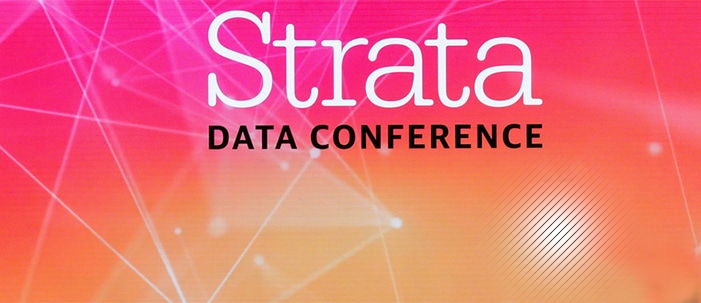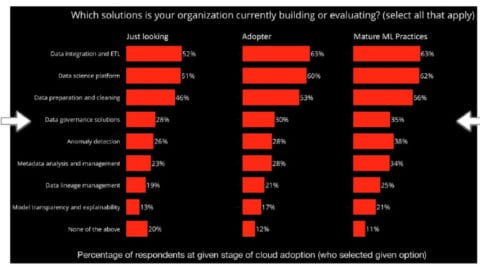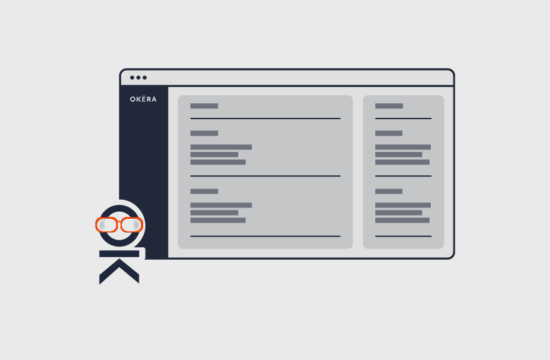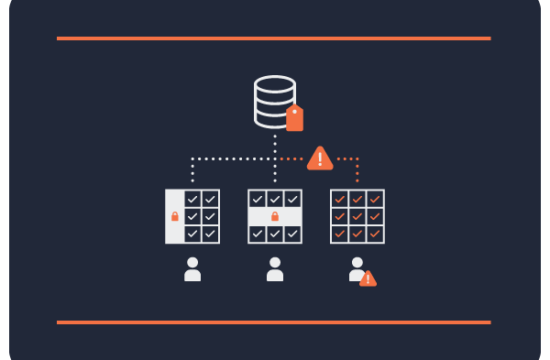Recap of Thought Leadership and Deployment Experience Sessions
Okera enjoyed an amazing Strata Data Conference in San Francisco, and we are particularly proud to be recognized with the Strata Award for Most Disruptive Startup. The recognition for that award, the content of key sessions, and the conversations with industry analysts and attendees confirm the following:
Data access control and governance is the unspoken concern underlying every major enterprise analytics and ML/AI initiative.
Themes at Strata Data Conference
Clearly, the popular themes of machine learning and artificial intelligence (ML & AI) took center stage, both literally and figuratively with respect to the content of sessions and vendors represented. At first glance, the secondary theme was about the latest open source technologies. There was also a fair amount of coverage on the ethical use of data. A theme flying seemingly under the radar is a foundational theme that is required to drive the success for ML & AI: data access control for governance as well as rising regulation pressures. Certainly, it’s a widely recognized concern, and we are seeing that we are still in the early days of this priority, however there is absolutely no argument from anyone that it’s a critical requirement.
In the rest of this blog, I will discuss some of the happenings around data security, access control and governance at Strata San Francisco in these two sections.
- Thought leadership sessions on data governance
- Customer experience sessions on data governance
Thought leadership sessions on data governance
I discuss the three sessions that provided a good overview of this topic:
- Overview of Data Governance by Paco Nathan, Co-chair for Strata
- Taking control of your data from Cloudera co-founder Mike Olson
- Big data in the era of heavy worldwide privacy regulations
Overview of Data Governance by Paco Nathan, Co-chair for Strata
Data Governance was recognized at the highest levels of the Strata Data Conference organizers — both the conference chair and co-chair as well as the lead sponsor, Cloudera.
In his session, Overview of data governance, Nathan presented some interesting stats from one of the surveys conducted by O’Reilly.
- As you can see, data governance is among the top four issues on the minds of the decision makers and it becomes even higher priority as their ML practice matures.
- In his session, Nathan recognized the importance of data governance to drive the success of enterprise data initiatives. His session explored quite a bit about why data governance may have fallen through the cracks, it did not provide exactly what is required to ensure proper data governance. For that, Okera proposes a white paper to address the six tenets of data governance.
Taking control of your data from Cloudera co-founder Mike Olson
Cloudera co-founder Mike Olson emphasized the importance of data security and data governance in his session From the edge to AI—Taking control of your data for fun and profit.
Big data in the era of heavy worldwide privacy regulations. With the changing regulatory landscape with General Data Protection Regulation (GDPR) dominating discussions until last May and the California Consumer Privacy Act (CCPA) now taking the lion’s share of discussions, this session was very timely. This session featured both Nikki Rouda, Principal Product Marketing Manager at AWS and Mark Donsky, head of Product Management at Okera. They delivered great content around managing regulatory compliance such as GDPR and CCPA, and you can follow a threaded description on Twitter here. If you would like to see a deeper dive, Okera’s recent recorded webinar covers similar content.
Customer experience sessions on data governance
There were many sessions wherein customers talked about their journey in data access and governance. Here is a sampling of some of those talks:
- Foundations for successful data projects: Ted Malaska, Director of Enterprise Architecture along with Jonathan Seidman from Cloudera emphasized data security and governance as a key requirement for a modern data architecture. Their key takeaways for data governance were:
- The most critical though difficult requirements from regulatory perspective will be tokenization (also known as “pseudonymization), anonymization and data masking.
- “Assume Change” (regulatory compliance, business requirements, new emerging technologies and so on)
- “Producer and Consumer Experience” is key to any solution and “UI is a key to future proofing,” ie, make it easy to use the product so that it’s always sticky.
- How Intuit reduced time to reliable insights for data pipelines. Sandeep Uttamchandani, Chief Data Architect & Head of Data Platform Engineering at Intuit, discussed the challenges with ‘proactively tracking changes in data across 10s of micro-services teams.’
- Governing with exponential change on the horizon: Law and data in an emerging AI world by Carole Piovesan, INQ Data Law. Piovesan discussed responsible data use and some of the legal issues arising with AI creation and operationalization. It’s all about responsible use of data.
Conclusion
Machine learning and artificial intelligence are obviously changing the world, and Strata is a great conference to showcase that movement. Less sexy, less spoken about, but widely recognized is that data access control for data governance is required for the success of any major data initiative. And while Cloudera’s co-founder Mike Olson says, “you can’t do machine learning without big data,” we assert that “you can’t do machine learning without data governance.”




